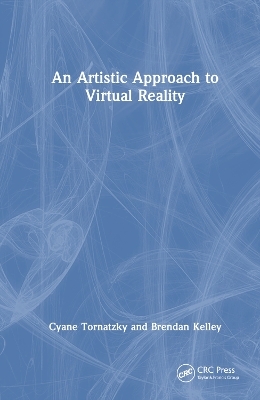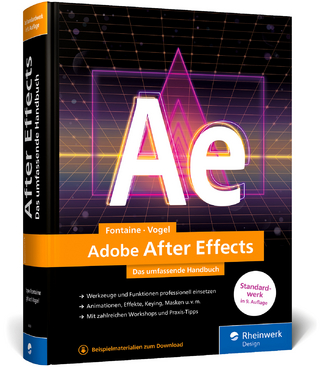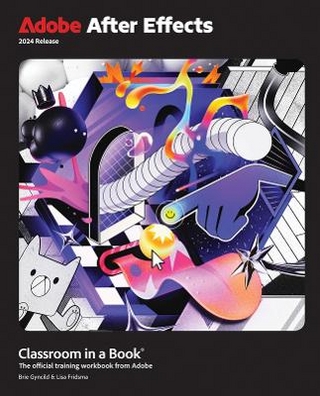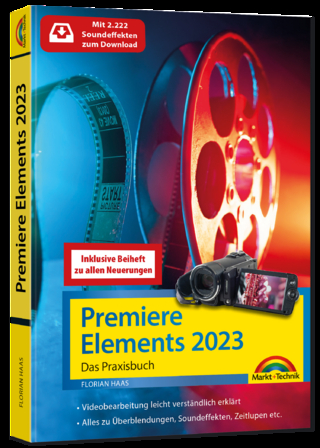
An Artistic Approach to Virtual Reality
CRC Press (Verlag)
978-1-032-42669-3 (ISBN)
A special quality about the medium of virtual reality is its immersive nature, allowing users to disengage from the physical world around them in order to fully interact with a digital environment. An Artistic Approach to Virtual Reality traces the lineage of artist/technologists who have worked with virtual reality in its infancy to the interactive virtual work of contemporary artists such as Laurie Anderson.
Interlaced within a survey of artists whose works fit in the boundary of the interactive virtual medium, this book teases out what qualifies as interactive virtual artworks. The authors discuss the theories behind basic mechanics required to enter the virtual reality space and investigate theories around visual and embodied conceptual space.
Key Features:
Explores theoretical and practical aspects of using virtual reality for artistic practice
Includes examples and discussion of virtual reality artworks from award-winning artists
Discusses topics relevant to virtual reality that are pertinent and persist throughout hardware and software changes
Provides historical and contemporary discussion of virtual reality artistic works.
Cyane Tornatzky Digital immigrant Cyane Tornatzky received her Masters of Fine Art in new media in San Francisco State University’s Conceptual and Information Arts program. In 2015, she started the Electronic Art program within the Department of Art and Art History at Colorado State University in Fort Collins, Colorado. As part of her coursework, Tornatzky teaches an art game class that starts with students creating board games and ends with them crafting digital art games, some in VR. As a CoPI for a virtual reality project with her colleagues in Veterinary Sciences at CSU, Tornatzky is Creative Director for a team developing a virtual reality training application for veterinarians. The application is a digital twin and has been released on Steam as a simulation game. Tornatzky is also on a research project with a colleague from Computer Science at CSU investing interfaces for a virtual reality sketching tool. Tornatzky is a visiting faculty member for the Richardson Design Center’s Design Thinking: Graduate Certificate in Virtual Reality, and teaches a course on Data Visualization in VR as well as co-teaches with Brendan Kelley a graduate level Serious Games Course. Tornatzky is a member of Colorado State University’s Office for the Vice President of Research Virtual Reality Advisory Board. Her own artworks vary from using code to dynamically generate images to creating installation work that uses stereoscopic lenses. Brendan Kelley Digital native Brendan Kelley is currently working towards a Doctorate of Philosophy in Computer Science with a focus on human computer interaction at Colorado State University (CSU) after completing a masters of science in Media Communications at CSU. He has worked with VR since the release of the first Oculus headset and has received several awards for his virtual reality, augmented reality, and game design work. His projects span the realms of art, industry, and academia. Projects of his such as Orillas Del Ebro VR (2019) explore the merging of humanities and science that is possible through virtual reality technologies by visualizing poetic writings and the anthropological hydrology principles they describe. Other works include The Path We’re On (2018); a collaborative virtual reality project that received the second place award in the 2018 Ram Reality HackAThon at CSU. He also worked as a virtual reality developer for several years with the Colorado State University Office for the Vice President of Research OVPR. During this time he acted as a consultant for the CSU VR Anatomy and CSU Vet VR projects as well as assisted and led the development of projects such as the CSU Environmental and Radiological Health Sciences Interactive Experience and the Aug Mag augmented reality magazine experience for the OVPR. In addition he has conducted research on design theories, social VR use, cognitive perceptions of VR, and the Artistic use of VR. This includes publications such as The Artistic Approach to VR (2019) co-authored by Cyane Tornatzky and published in the proceedings of the 2019 VRCAI conference. More recently he has worked on the research paper titled The Rise of the ‘Quarantine Bar Simulator’ (2020) which explores the different ways in which Social VR was used during the ongoing COVID-19 pandemic. He has also helped to develop graduate level courses for the Nancy Richardson Design Center, where he is an adjunct professor, focused around both virtual and augmented reality technologies. More recently his research has focused on cognitive aspects of virtual and augmented reality technologies such as his masters thesis work which compared learning efficacy among augmented reality, paper manual, and online video training modalities, as well as the creation of an augmented reality platform dubbed the Augmented Reality Assistant or ARA, and an ongoing cognitive cueing research project.
Dedication
Author Biographies
Preface
Chapter One: Introduction
Chapter Two: Early Predecessors
Chapter 3: Artists Working in Virtual Reality pre-2010
Chapter Four: Mechanics, Input, and Output
Chapter Five: Artist Gallery- Lawrence Lek, Mohsen Hazarati, Sandrine Deumier
Chapter 6: The Visual Conceptual Space
Chapter Seven: Artist Gallery- Ian Cheng, Matteo Zamagni, and Rebecca Allen
Chapter Eight: Virtual Reality as a Medium
Chapter Nine: Artist Gallery- Jacolby Satterwaite and Rachel Rossin
Chapter Ten: The Embodied Conceptual Space
Chapter Eleven: Artist Gallery - Lori Anderson and Hsin-Chien Huang
Chapter Twelve: Output and Access of Artistic Virtual Reality Content
Chapter Thirteen: Conclusion
| Erscheinungsdatum | 27.10.2023 |
|---|---|
| Zusatzinfo | 38 Halftones, color; 6 Halftones, black and white; 38 Illustrations, color; 6 Illustrations, black and white |
| Verlagsort | London |
| Sprache | englisch |
| Maße | 152 x 229 mm |
| Gewicht | 500 g |
| Themenwelt | Kunst / Musik / Theater |
| Informatik ► Grafik / Design ► Film- / Video-Bearbeitung | |
| Mathematik / Informatik ► Informatik ► Theorie / Studium | |
| ISBN-10 | 1-032-42669-1 / 1032426691 |
| ISBN-13 | 978-1-032-42669-3 / 9781032426693 |
| Zustand | Neuware |
| Informationen gemäß Produktsicherheitsverordnung (GPSR) | |
| Haben Sie eine Frage zum Produkt? |
aus dem Bereich


